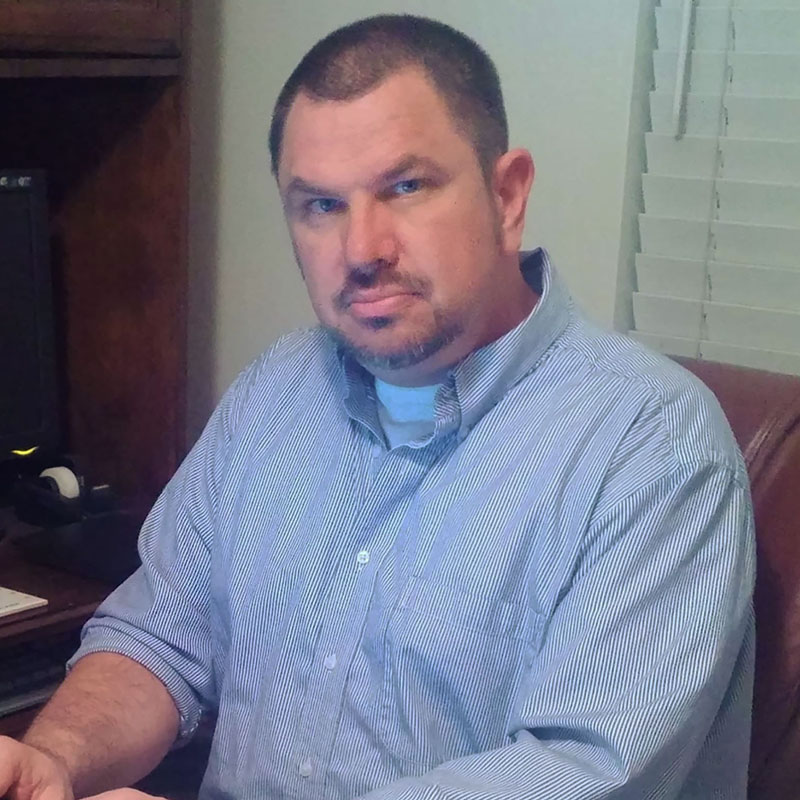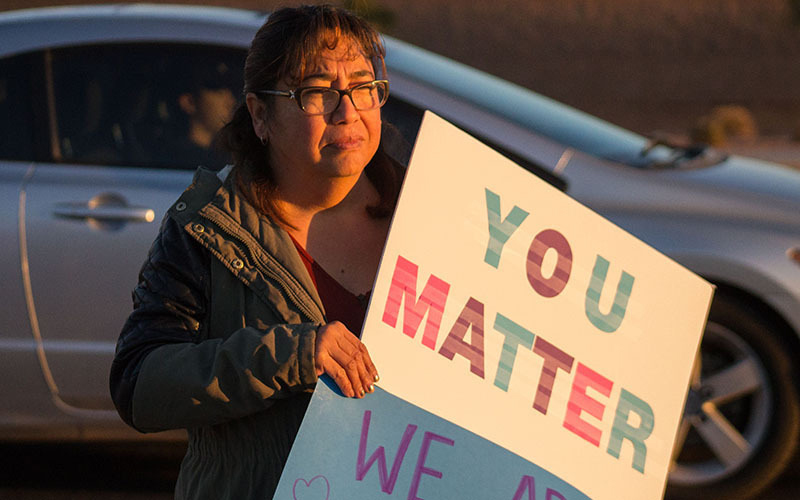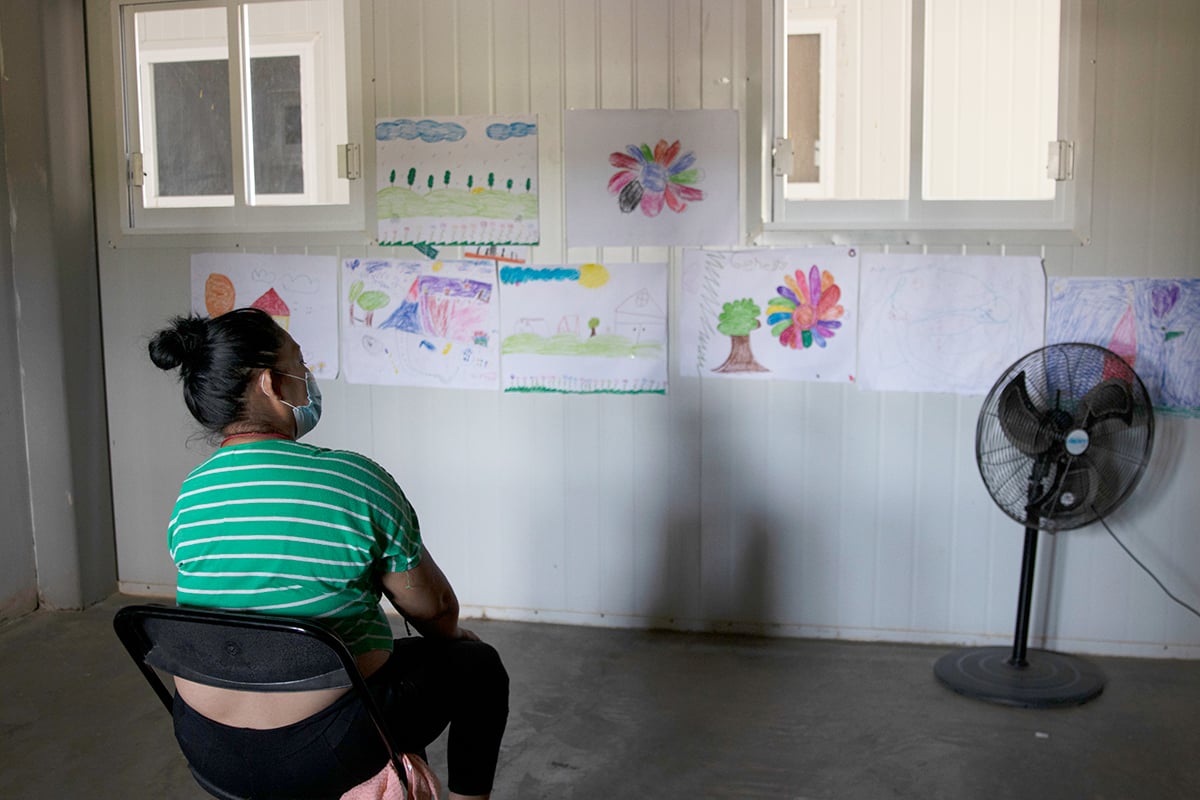
WASHINGTON – Over more than 30 years, Peoria resident Michael Burns was diagnosed with everything from ADHD to PTSD to depression, but it was not until he did his own research that he found a diagnosis that fit: Complex PTSD.
When he showed his research to his clinicians, they agreed he was the poster child for the condition, defined as post-traumatic stress disorder with “trauma with victimization or betrayal” as its cause.
“Up until now the diagnoses have been all over the place, and based on symptoms rather than whole complex causes,” Burns said.
First identified in 1988, CPTSD was not added to the World Health Organization’s International Classification of Diseases until 2019 – the same year Burns did his research – and that listing only became official this year.
The WHO listing “is especially important for these patients because they are so often misdiagnosed,” said Judith Herman, the psychologist who first described complex PTSD in 1988.
But Burns and other sufferers say that, even with official WHO recognition, they still struggle to get the right diagnosis and treatment for a little-understood disease. That affects not only their ability to get proper treatment, but also to get disability, insurance and other support.
Dr. Julian Ford, a clinical psychologist and professor at the University of Connecticut School of Medicine, said that many times clinicians understand and use the concepts of complex PTSD, but record it as PTSD.
That’s what happened for Mary Armstrong, a Virginia resident who said two separate mental health professionals told her she had CPTSD, but that her official diagnosis remains PTSD. That lets her get access to some treatments, but not enough for the accommodations she said she needs.
Armstrong said “no one would hire me,” because of her symptoms, and when she applied for Social Security disability, she was denied.
“With it not being an officially recognized diagnosis, there’s nothing to support my, you know, my experiences,” Armstrong said recently.
PTSD symptoms do not fully encompass what complex PTSD sufferers experience. Ford said they have added symptoms of emotional dysregulation, feeling like they have no worth as a person, and having difficulty in their relationships due to emotional detachment, setting them apart from other diagnoses.
Herman thinks the resistance to diagnosing people with CPTSD has to do with the fact that those trained in the mental health field “learn very little about trauma.”
“People will associate it (trauma) with combat, but not necessarily with the violence of everyday life,” Herman said.
“I think it is going to require much more active incorporation into professional education” for practitioners to understand that any trauma that involves abuse is complex trauma, she said.

Peoria resident Michael Burns has been diagnosed with a range of conditions, but said his own research led him to believe he suffers from complex PTSD, which was relatively recently recognized. (Photo courtesy Michael Burns)
Ford said an important distinction from PTSD is how the trauma happens: Complex PTSD is “trauma with victimization or betrayal.”
“The only thing that links my traumatic experiences together, maybe, is that virtually all of them begin and end with somebody in a position of authority,” said Burns, who said he had a troubled childhood, and several other traumatic events.
Burns has sought help for his symptoms since his early 20s, and was diagnosed with depression, PTSD, attention-deficit/hyperactivity disorder, severe social anxiety, generalized anxiety disorder and insomnia. None brought a long-term solution.
“I’ll be able to maintain this sort of functional facade for a couple of years, and then boom, it hits me again,” said Burns, who has had to take leave from work when his symptoms worsened.
Nothing was helping. He tried different therapies, which made him worse.
“We’re diagnosing all of these, you know, individual symptoms and throwing pills and treatments at all these individual symptoms rather than one coherent whole, and that wasn’t working,” Burns said.
Herman said misdiagnosed complex PTSD can lead to a patient getting prescribed too many drugs. Burns is familiar, having been prescribed several antidepressants and anxiety drugs over the years. He is growing frustrated with the system.
“I can’t work, I can’t fix this. Drugs aren’t working, nothing’s helping. My therapist bails, now I got to find another one,” he said.
Besides leading to the wrong treatments, a lack of a CPTSD diagnosis can also make it harder for people to get what they think may be the right treatment.
Jenice Hughes is a nurse-anesthetist at Scottsdale Ketamine Clinic, which offers treatment for CPTSD, but said it is currently “considered an off-label use so insurances and stuff have gotten away from having to pay for it.”
“The cost of the treatment is actually a limiting factor very often, and so a lot of times that’s why people you know don’t get treated,” Hughes said.
Burns found an inpatient treatment he wanted to try, but the cost put it out of the question.
“I still have a 20% copay coupled with the fact that many of the trauma specialists that I’m seeking out specifically may not take insurance,” he said. “In fact, most of them don’t.”
A proper diagnosis can make all the difference as Shannon Culverhouse learned. The Oregon resident was told as far back as 2018 that she had CPTSD, but her diagnosis was not officially updated until early July.
“For many years, I didn’t seek treatments, because the meds weren’t helping me,” said Culverhouse, who was diagnosed with bipolar and PTSD in 1994.
She said that having a proper diagnosis has given her new hope in her treatment.
“It allows me to approach my mental health issues from that perspective,” she said.
Both Burns and Armstrong said that, now that CPTSD is recognized by the WHO, they will keep pressing for wider recognition and keep pushing for a proper diagnosis of their own cases. Although Burns, who said he has spent tens of thousands of dollars trying to get treatment, said he can’t imagine things getting better unless “a multitude of miracles occur.”
But for Culverhouse, with the proper CPTSD diagnosis, things are looking up.
“I’ve been on a better track and I definitely really experienced more self love, more self acceptance,” she said.


